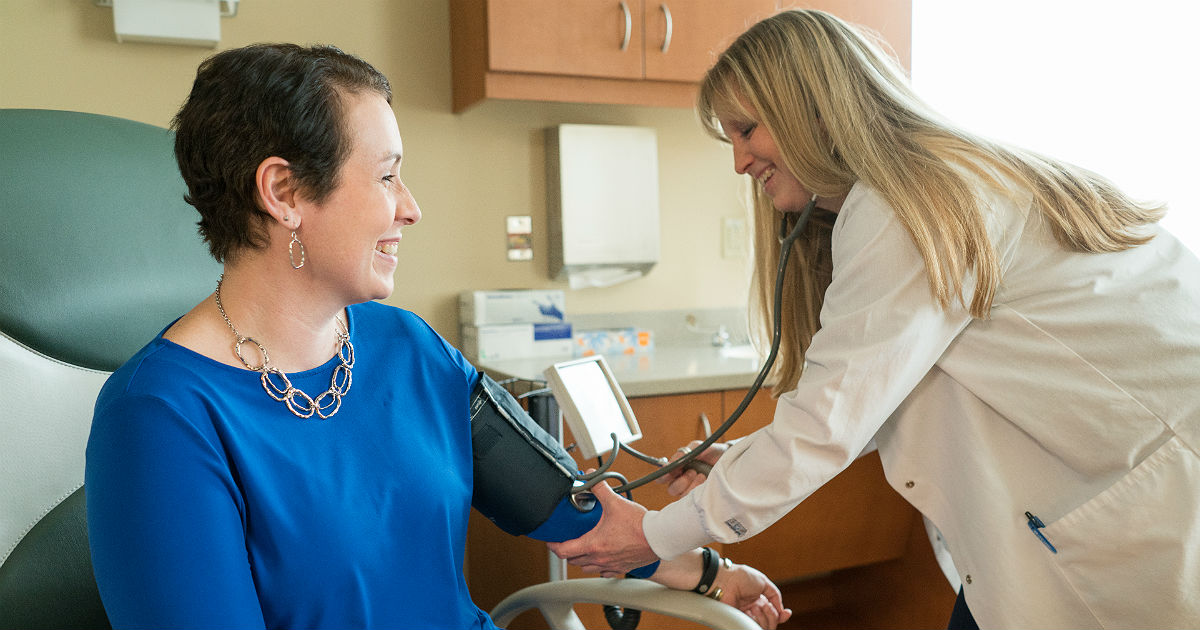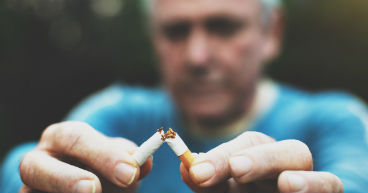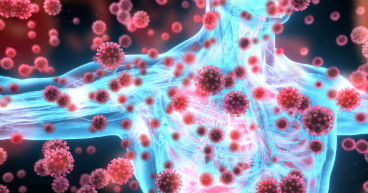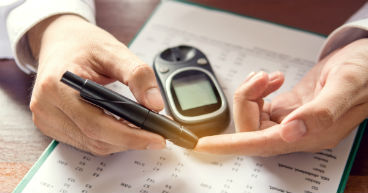
High blood pressure, also known as hypertension, is a condition that can damage the arteries, heart and other organs. It is common for cancer patients to have high blood pressure because some cancer treatments, including certain types of chemotherapy, hormone therapy and targeted therapy, may have side effects on the cardiovascular system.
If left untreated, high blood pressure may lead to a heart attack, heart disease, heart failure, stroke, kidney damage and peripheral arterial disease, among other health problems. And, while patients with high blood pressure are not considered at high risk from COVID-19, the U.S. Centers for Disease Control and Prevention (CDC) points out that many patients with hypertension have other conditions, such as obesity, diabetes and heart conditions, that do put them at higher risk. The CDC recommends that patients with high blood pressure stick to their medication and treatment regimens.
How does high blood pressure affect the heart and body?
High blood pressure affects the heart by injuring the walls of the arteries. The force on the arteries is so great, it creates small tears in the artery walls. Plaque (which consists of particles of fat, cholesterol and other substances) then gets trapped in the tears, building up in the arteries and preventing the normal flow of blood to the heart, brain, kidneys, arms and legs.
Through natural aging, your arteries harden and become much less elastic. Uncontrolled high blood pressure speeds up this progression, accelerating hardening of the arteries.
Damaged arteries cannot deliver adequate blood flow to the body's organs. As a result, these “damaged” organs suffer because they do not receive proper blood supply. This may lead to a heart attack, stroke or other life-threatening illnesses.
Dealing with high blood pressure and cancer
High blood pressure is a common side effect of cancer treatment, particularly chemotherapy and targeted therapy. Some hormone therapies may also cause high blood pressure.
Researchers are studying the effects of various cancer medications on the heart and cardiovascular system to determine why they raise blood pressure. Scientists at Duke University Medical Center suggest that angiogenesis inhibitors such may cause patients’ blood pressure to spike because the drugs block the growth of new blood vessels, reducing the level of nitric oxide, which helps regulate blood vessel health.
Some chemotherapy drugs may also interact with heart medications. Oncologists need to carefully consider medications patients are receiving for high blood pressure when planning cancer treatment to avoid possible drug interactions. If a patient has a severe reaction to a drug while they are receiving a chemotherapy infusion, treatment will need to be stopped immediately.
Also, if high blood pressure is poorly controlled, patients’ hearts may not function normally. They may struggle with the physical effects of cancer treatment and have to stop treatment.
It’s vital to get your blood pressure checked regularly and to know the signs of high blood pressure: severe headache, confusion or fatigue, vision problems, chest pain, irregular heartbeat, difficulty breathing, blood in the urine and pounding in the chest, neck or ears. Some patients may not feel any ill effects from hypertension, which is why it is sometimes called the “silent killer.”
Patients who have high blood pressure and cancer need to:
- Communicate their medical history to their doctors
- Be diligent about checkups and regular blood pressure testing
- Ask their doctors plenty of questions to make sure they fully understand the diseases, as well as treatments
- Undergo screening tests to help doctors monitor for heart disease and other problems
- Take steps to improve their overall health and help manage their blood pressure
Tips to help manage your blood pressure
Living a healthier lifestyle may help to help prevent high blood pressure. Here are some other tips:
- Know your blood pressure and strive to keep it in the normal range. In general, a “normal” blood pressure rate is 120/80.
- Maintain a healthy weight.
- Exercise regularly. Exercising at least 30 minutes a day, six days a week is recommended for those who are able.
- Eat healthy and watch added sugars in the diet. Sugar, more specifically, carbohydrates, cause insulin to be released, and insulin, other than being a potent growth factor, may increase blood pressure via several mechanisms including increased renal sodium reabsorption, activation of the sympathetic nervous system, modification of transmembrane ion transport, and hypertrophy of resistance vessels. If you are insulin resistant due to obesity, or metabolic syndrome, discuss this with your PCP to find ways to improve this
- Reduce the amount of salt/sodium in your diet. Sodium may increase blood pressure, so limiting or reducing the amount you take in may be helpful.
- Limit alcohol consumption or cut it out completely.
- Watch excess caffeine intake.
- If you smoke, quit.
- Reduce stress. Try meditation, guided imagery or other relaxation techniques.
- Take medication your doctor prescribes to help control blood pressure as directed.
- See your primary care physician and oncologist regularly for checkups.
- Check your blood pressure regularly. Ask your doctor how often you should test your blood pressure and be sure to follow that schedule.
Learn more about the importance of getting screened for colorectal cancer.



